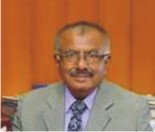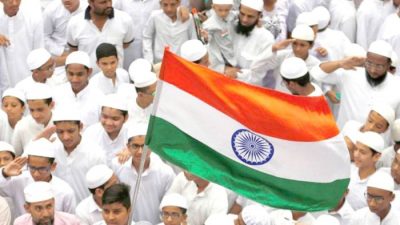
Jalees Ahmed Khan Tareen
The Muslims of India are today at a crossroads. The community has continued to be socially, educationally and economically backward, with increasing vacuum in its political leadership and confusing division in the form of sectarian groups and jamaats. The Babri Masjid controversy brought no good to the larger Muslim masses, and only produced more hate, bias and polarization and consequential sufferings. Those community leaders who refused to listen to the moderate voices to gift the structure as a goodwill gesture to Hindus are now faceless and have no answer with regard to the assistance, they rendered through this controversy to right-wing forces in polarizing the secular fabric of this beautiful country of ours.
I consider the Indian Muslim community to be at a crossroads because it now must decide which way it shall go now to recover from the damage it has suffered through polarization, isolation and discrimination, partly owing to the agenda of certain right-wing forces and partly because of the shortsightedness of its own leaders who are without any long-term strategies for the younger generation of the community.

Here are some facts that need to be pondered on:
• Our community does not strategize its policies for the coming few decades foreseeing what is in the offing, but, instead, stays entangled in current distractions that are deliberately thrown on our face by those who want to keep us backward and disgraced.
• Our community has political leaders who are not only shortsighted and selfish and often ignorant but have also effectively worked hard to keep the culture of sycophancy alive for their own survival and material gains.
• The community is incorrigibly divided into jamaats, firqas, schools of thought and groups based on political party affiliation, with internal squabbles and strong cleavages that have given an easy advantage to those who want to keep Muslims a backward community.
• Many of our imams and ulema who are supposed to give sermons that address the contemporary issues of the community so as to help them become socially, educationally and economically competitive hardly go beyond the traditional lectures they have been trained to memorize, on topics such as Doomsday, the punishment in the grave, the supposed irrelevance of the world and worldly attainments, the external appearance and attire of Muslims more than on their character, disputing science and scientific discoveries, and speaking in a manner that secludes the Muslim community more and more every day from the other communities. The sermons seclude Muslims more than encouraging them to cultivate cordial relations with others.
The biggest challenge before the community and its coming generations is their seclusion from other communities, as well as isolation, bias and prejudices in day-to-day life. The community has failed to recognize the consequences of hate and poison spread by a section of the society against Muslims and Islam. Actually, Muslims themselves have been helping such forces in their organized mission by increasing their own isolation from the mainstream. The only way to dilute the poison and counter the hate is by increasing our cordiality and cordially interacting with all communities. It is seen that even in schools and colleges, Muslim students tend to make their own groups and remain cut off from others. In any multi-community gathering, you can easily spot Muslims as they will isolate themselves and coagulate into a cluster, away from the other communities. How can you make non-Muslims recognize and realize the good teachings of Islam unless you befriend them and interact with them? How can an average non-Muslim recognize that you are a good person unless you interact with him, wish him and share with him your views? The simplest movement that the community can start is to wish every non-Muslim in the neighborhood when they meet them, saying “Namaskar”, “Good morning”, “Salaam” or “Aadab”. It costs you nothing but the return is goodwill, which is bountiful.
Muslims should stop segregating themselves. Rather, they should mix with all and share conversations. Muslims should work hard to win the goodwill of the people from the other communities. Muslims need to help them gain a positive opinion about Islam, which is now influenced by propaganda and media narratives. Our mission should be to build up good relations, cordiality and connectivity through interaction with our non-Muslim brothers.
A Muslim should be first recognized with his or her good character, conduct and good behavior rather than from his or her attire. That comes next.
Another challenge before the community is educational backwardness. The school dropout rate is highest among Muslims. Muslim girls are given the minimum priority in education. Many of them discontinue their education for want of financial support, with parental bias against sending them for higher education. Restriction on women’s education in higher degrees, professional programmes, women’s entry into work places, scientific research Institutes, companies, hospitals, banks, administrative jobs etc. is still largely driven by conservative ideas propagated by imams and ulema in Friday khutbas. Needless to say, if a woman is educated and economically independent, the entire community will be educated and richer by 50%.
Another challenge before the community is the education that is imparted at the regular madrasas. We all recognize and acknowledge the great contribution of many of the scholars that madrasas have produced in safeguarding the teachings of Islam, but what we fail to understand is the following: Should a madrasa, besides providing Quranic teaching, not prepare the students to also study subjects like Science, Math’s, Social Science, English and regional languages and make them appear for the matriculation exam, which would open up to them a parallel avenue to enter higher education and even professional education?
We need to prepare scholars in madrasas who can communicate in the regional language and English so as to enable them to interact with people of other faiths and backgrounds with ease and full confidence, rather than conglomerating into clusters of their own co-religionists wherever they go, unable to communicate with people of other communities because of language barriers and inability to converse on subjects of contemporary interest.
We need imams who are economically sound and financially independent, who understand science and technology and the intricacies of today’s society, who lead the community on the moderate path of Islam and encourage members of the community to be good citizens, earning the goodwill of people of other faiths and being connected with all communities.
We need imams who can connect up with the Muslim youth of the 21st century and children who will be growing up in a different world, of social connectivity and exposure to all sorts of challenges.
These are some issues that the Muslim community leadership, including religious leaders, need to seriously focus on.
Yet another challenge is about reaching out to the Muslim masses. The largest channel to reach and communicate with the Muslim masses is through mosques, including through Friday khutbas. The imam is a prime channel of communication with the masses. We recognize that not all imams have the knowledge to give khutbas on topics such as the importance of modern education (particularly higher education and women’s education), modernization of madrasa education, connectivity, cordiality and positive interaction with people of other faiths, the adverse effects of seclusion and isolation, etc.. In this situation, the knowledgeable class of the community should immediately prepare suitable khutbas for this purpose, print them and make them available to mosques and imams throughout the country.
My last concern is about how the community is falling an easy prey to distractions and controversies thrown on our face and how some of our shortsighted leaders not only get indulged into these but also drag the entire community into these squabbles of Mandir-Masjid disputes. In doing so, they help in the success of the schemes of detractors, whose intention is to keep us engaged in unproductive emotional issues. Such issues keep us away from our issues of education, health and economic needs at the same time as they help them to polarize the society against the community. One such recent example is the Babri mosque issue, which was the most unproductive communal quarrel, fought by a group of shortsighted leaders who only helped certain forces to polarize the entire country to breed anti-Islamic sentiments and gain power. I consistently spoke against this dispute, and I was always in favor of just gifting the structure away as a goodwill gesture to our Hindu brothers. That would have saved us from massive polarization, bias and suffering in every walk of life for the past 30 years.
This should be a lesson to the community not to get distracted and trapped into deliberate controversies thrown at them. The community should stay firm with its strategy to be moderate, educated, friendly and good Muslims who preach goodness and kindness and oppose and condemn any kind of extremism and terrorism.
To sum up, the Indian Muslims should focus on developing good relations with people of other faiths and on encouraging Muslims to prosper in the world (but as good, God-conscious people), educating the community (including Muslim women), and modernizing madrasas. They must not fall prey to schemes of any extremist force. They must be a truly God-conscious people, this being exhibited through their behavior and character and their dealings with others. They should remember that isolation from the main society will cause irreparable loss to Muslims themselves, particularly to the entire future generations.
I am firm in my view that every Indian Muslim should be a part of India’s growth and fully benefit from its progress by participation, education and cordiality and by contributing to the welfare of the country as a whole.
(The author is former Vice Chancellor of Kashmir University, Pondicherry Central University and Abdur Rahman Crescent University, and is a former member of the UGC. Email: tareenjak@yahoo.co.in)

COMMENTS